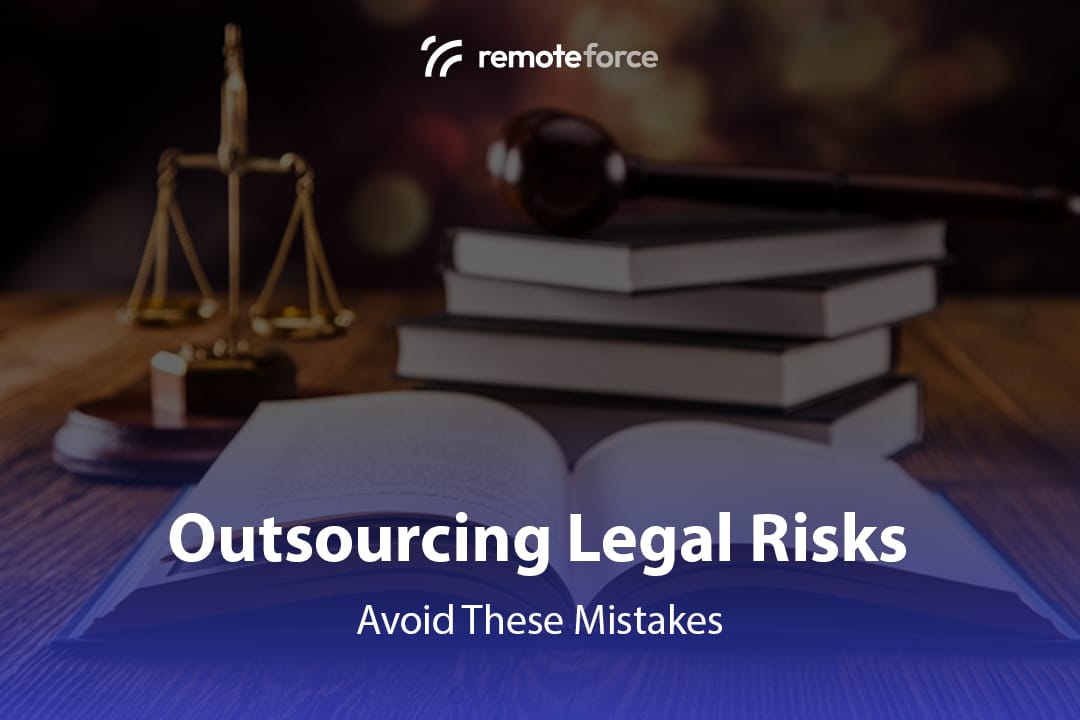In the dynamic and demanding realm of executive leadership, the role of an executive secretary, often referred to as an executive assistant or administrative partner, is far more pivotal and multifaceted than traditionally perceived. These highly skilled professionals are the operational linchpins of an executive’s office, undertaking a vast array of responsibilities that are critical to the productivity, efficiency, and overall success of the leaders they support. Understanding what executive secretaries really do reveals their function as strategic allies, indispensable in enabling executives to focus on high-level decision-making and corporate strategy.
We recognize that for both aspiring professionals aiming to excel in this challenging career and for hiring managers seeking to secure top-tier talent, a clear and comprehensive explanation of executive secretarial responsibilities is essential. This article delves deep into the core duties, essential skills, and significant impact of these professionals, illustrating how they provide unparalleled support to leadership and contribute to the seamless functioning of an organization.
Table of Contents
ToggleBeyond Administration: Defining the Modern Executive Secretary
The title “executive secretary” or “executive assistant” signifies a role that transcends basic administrative tasks. These individuals are high-level administrative professionals who work directly with top-tier executives, including CEOs, CFOs, COOs, and other C-suite members or senior vice presidents. Their position is characterized by a high degree of responsibility, autonomy, and the need for exceptional judgment and discretion.
Unlike general secretarial roles, an executive secretary operates at a strategic support level. They are not merely managing tasks but are actively involved in managing the executive’s time, information flow, and professional relationships. Often, they act as a gatekeeper, a confidante, a project coordinator, and a crucial extension of the executive’s capacity, anticipating needs and proactively addressing challenges. We understand this role as a partnership, where the executive secretary’s contribution is integral to the executive’s effectiveness.
A Comprehensive Breakdown: Key Executive Secretarial Responsibilities

The duties of an executive secretary are extensive and require a sophisticated skill set. These responsibilities can be grouped into several key areas, each vital for providing comprehensive support to leadership.
1. Advanced Administrative and Operational Management
This forms the bedrock of an executive secretary’s role, ensuring the executive’s office runs like a well-oiled machine.
- Complex Calendar and Diary Management: This involves meticulously managing the executive’s schedule, which is often packed with appointments, meetings across different time zones, and conflicting priorities. It requires strategic planning to optimize the executive’s time and ensure they are prepared for each engagement.
- High-Level Meeting and Event Coordination: Organizing and coordinating board meetings, senior management conferences, shareholder meetings, and other significant corporate events. This includes preparing and distributing agendas, compiling board packs, taking accurate and confidential minutes, tracking action items, and handling all logistical arrangements (venue, catering, AV equipment).
- Sophisticated Travel Arrangements: Managing all aspects of domestic and international travel for the executive, including flight and accommodation bookings, visa applications, ground transportation, and detailed itinerary preparation, often involving complex multi-leg journeys and last-minute changes.
- Executive Office Management: Overseeing the smooth operation of the executive’s immediate office environment, liaising with other departments (IT, HR, facilities), managing resources, and ensuring a professional and efficient workspace.
- Expense and Budget Oversight: Processing and managing the executive’s expense reports, tracking departmental or office budgets, and liaising with the finance department to ensure compliance with company policies.
2. The Hub of Communication and Information Management
Executive secretaries serve as the central point for all communications and information flowing to and from the executive.
- Gatekeeping and Prioritization: Acting as the primary point of contact for the executive, skillfully screening and prioritizing incoming calls, emails, visitors, and physical correspondence to manage the executive’s accessibility and focus.
- High-Level Document Preparation: Drafting, proofreading, editing, and formatting a wide range of confidential and high-stakes documents, including internal and external communications, official correspondence, reports, presentations, and briefing notes, ensuring impeccable grammar, accuracy, and professional presentation.
- Confidential Information Management: Handling highly sensitive corporate, financial, and personal information with the utmost discretion and integrity, maintaining secure physical and digital filing systems.
- Research and Information Synthesis: Conducting research, gathering data, and compiling information from various sources to support the executive in preparing for meetings, presentations, or decision-making processes.
- Advanced Filing Systems: Developing and maintaining sophisticated and intuitive filing systems, both electronic (e.g., on shared drives or using document management software) and physical, to ensure quick and easy retrieval of critical executive documents.
3. Strategic Partnership and Project Coordination
Modern executive secretaries often play a more strategic role, actively contributing to projects and anticipating executive needs.
- Proactive Needs Anticipation: Understanding the executive’s priorities, working style, and upcoming commitments to proactively address requirements, solve problems before they arise, and ensure the executive is always well-prepared.
- Project Management Support: Assisting with the coordination and tracking of special projects and key initiatives assigned by the executive, monitoring deadlines, and liaising with team members to ensure progress.
- Preparation of Briefing Materials: Compiling comprehensive briefing packs for the executive ahead of important meetings, conferences, or public appearances, summarizing key information, attendee profiles, and talking points.
- Stakeholder Liaison: Professionally interacting and liaising with internal and external stakeholders, including board members, senior management, key clients, government officials, and industry contacts, often on behalf of the executive.
4. Cultivating Interpersonal Dynamics and Relationship Management
The ability to navigate complex interpersonal dynamics is crucial for an executive secretary supporting leadership.
- Building Key Relationships: Establishing and maintaining strong, positive working relationships with individuals at all levels, both within and outside the organization.
- Emotional Intelligence and Professionalism: Demonstrating high emotional intelligence, maintaining composure under pressure, and exhibiting a consistently professional and polished demeanor.
- Diplomatic Conflict Resolution: Handling potentially delicate situations, managing conflicting demands, and resolving administrative or interpersonal issues with tact and diplomacy.
The Essential Toolkit: Skills and Attributes of a Premier Executive Secretary
To successfully manage these diverse responsibilities, an executive secretary must possess a robust set of skills and personal attributes.
- Exceptional Organizational and Time-Management Capabilities: The ability to prioritize effectively, manage multiple complex tasks simultaneously, and meet stringent deadlines is fundamental.
- Superior Communication Skills: Impeccable written and verbal communication skills, along with excellent listening and interpersonal abilities.
- Unwavering Discretion, Confidentiality, and Integrity: Given access to sensitive information, these qualities are non-negotiable.
- Proactive Mindset and Resourceful Problem-Solving: The initiative to anticipate needs and independently find effective solutions.
- Resilience and Ability to Multitask Under Pressure: Thriving in a fast-paced, high-stakes environment.
- Meticulous Attention to Detail and Accuracy: Ensuring all work is error-free and of the highest quality.
- Advanced Proficiency in Technology: Mastery of office productivity suites (Microsoft Office, Google Workspace), collaboration tools, video conferencing platforms, CRM systems, and often specialized industry software.
- Strong Judgment, Initiative, and Decision-Making Skills: The ability to make sound decisions, often independently, within the scope of their role.
- Adaptability, Flexibility, and a “Can-Do” Attitude: The capacity to adjust to changing priorities and unexpected demands seamlessly.
The Ripple Effect: How Executive Secretaries Empower Leadership and Drive Organizational Efficiency
The impact of a highly effective executive secretary extends far beyond the executive’s immediate office, contributing significantly to overall organizational success.
- Maximizing Executive Productivity: By expertly managing administrative and operational tasks, they free up the executive to focus on strategic leadership, vision, and core business objectives.
- Ensuring Seamless Executive Operations: Their organizational prowess ensures that the executive’s workflow is smooth, appointments are met, travel is efficient, and information is readily available.
- Facilitating Clear and Effective Communication: They act as a crucial conduit for communication, ensuring messages are conveyed accurately and that the executive’s time is used for the most important interactions.
- Enhancing the Executive’s Professional Image: Their professionalism, efficiency, and courteous interactions reflect positively on the executive and the organization as a whole.
- Supporting Informed Decision-Making: By providing well-researched information, organized data, and timely briefings, they contribute to the quality of executive decision-making.
- Serving as a Stabilizing Influence: Often, they become a trusted advisor and a source of stability and continuity within the executive team, possessing significant institutional knowledge.
Pathways to Excellence: For Aspiring Professionals and Insight for Hiring Managers
For individuals aspiring to become executive secretaries, a combination of relevant education (often a degree in business administration or a related field), progressively responsible administrative experience, and continuous skill development (particularly in technology and communication) is key. Opportunities for advancement can lead to roles such as senior executive assistant, chief of staff, or other managerial positions.
For hiring managers, identifying top executive secretarial talent involves looking beyond basic administrative skills. We advise focusing on candidates who demonstrate strategic thinking, exceptional problem-solving abilities, strong interpersonal skills, and a proven track record of supporting senior leadership with discretion and proactivity. Crafting a job description that accurately reflects the high-level responsibilities and offering a competitive compensation package are crucial for attracting the best candidates.
Elevate Your Leadership Support with Expert Secretarial Services
The intricate and demanding nature of executive secretarial responsibilities highlights the profound impact that dedicated, highly skilled administrative professionals have on leadership effectiveness and overall organizational efficiency. The ability to anticipate needs, manage complex logistics, guard confidential information, and act as a seamless extension of an executive is invaluable. This level of support is not just a convenience; it’s a strategic imperative for businesses aiming for the top.
At RemoteForce, we understand the critical role that exceptional secretarial and administrative support plays in empowering leaders and streamlining operations. If your organization is looking to provide its leadership with the high-caliber assistance detailed here, or if you need to enhance administrative efficiency across any department, RemoteForce offers a suite of tailored secretarial services. Our professionals are equipped to handle a wide array of administrative tasks with the precision, discretion, and proactivity your business deserves. Discover how RemoteForce can help you optimize your support structures and free your key personnel to focus on what they do best. Contact us today to explore our comprehensive secretarial service solutions.




